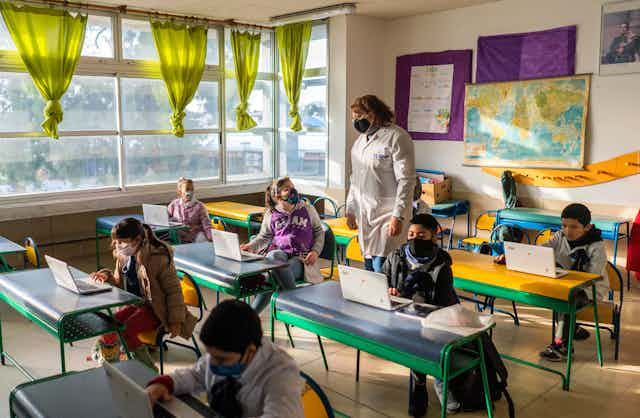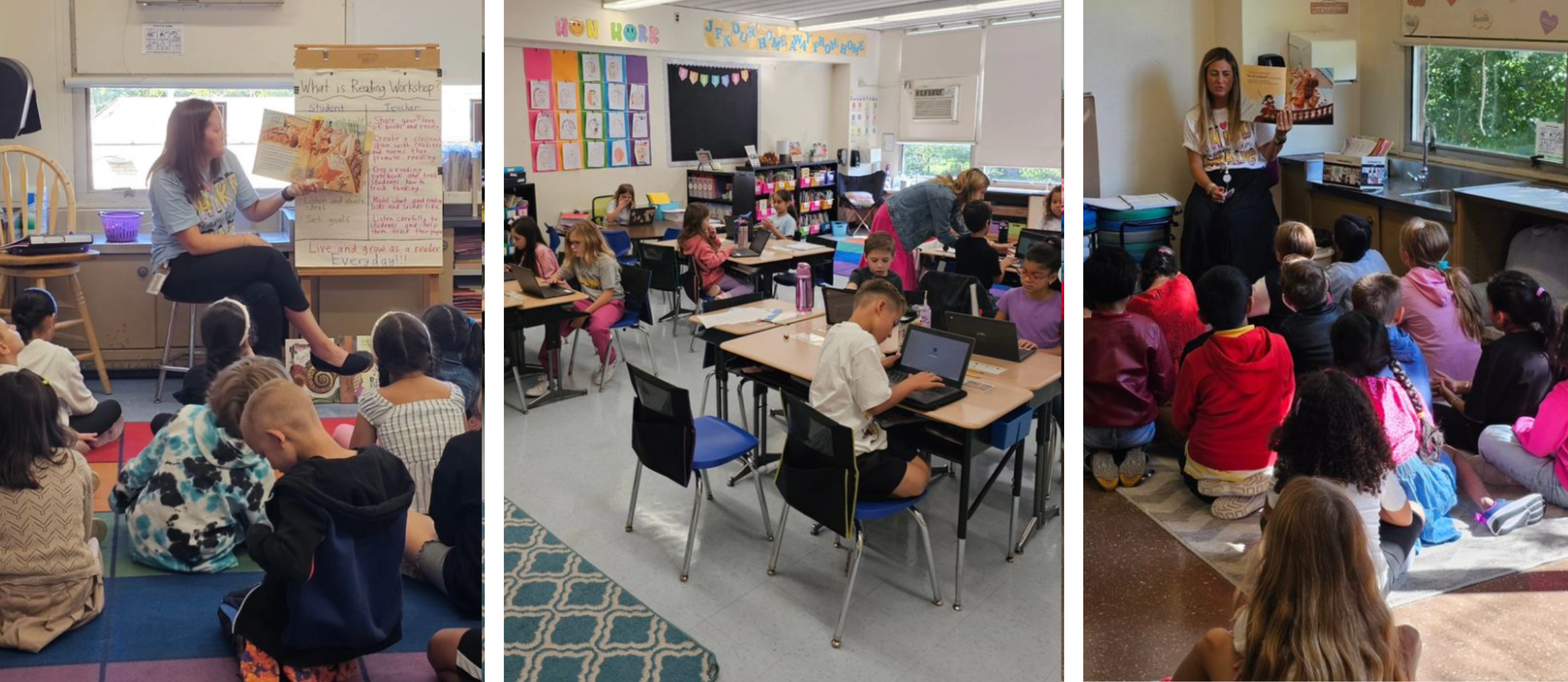The Function of Moms And Dads and Teachers in the Initiative to Save Temecula Schools
The Function of Moms And Dads and Teachers in the Initiative to Save Temecula Schools
Blog Article
How Schools Play a Vital Duty in Shaping Future Leaders and Pioneers
Schools contribute in forming future leaders and trendsetters through the farming of critical thinking, imagination, and cooperation. By integrating project-based understanding and interdisciplinary studies, schools test trainees to examine and manufacture complicated details. Teachers function as mentors, guiding trainees and supporting their capacity, while after-school activities additionally develop leadership abilities and resilience. This vibrant environment not only concentrates on private toughness yet also stresses the significance of teamwork, necessary for navigating tomorrow's challenges. How precisely do these aspects interplay to develop a durable structure for future success?
Cultivating Essential Assuming
In today's quickly advancing world, fostering essential assuming within universities has become paramount. As society faces progressively complex worldwide challenges, the capability to evaluate, review, and manufacture info is necessary. Institutions play a critical function in creating these abilities, preparing students to navigate and address multifaceted issues with educated, reasoned choices.
To grow crucial thinking, teachers employ various instructional techniques that motivate active knowing and intellectual involvement. Classroom discussions, problem-based learning, and Socratic examining contribute in advertising reflective and analytical thought processes. By testing pupils to question assumptions and think about numerous point of views, these techniques guarantee a much deeper understanding of subject matter beyond rote memorization.
In addition, integrating essential believing throughout the curriculum strengthens its value and applicability in diverse contexts. Topics such as maths, science, history, and literary works each offer special possibilities to create students' important faculties. Examining historic events requires understanding and evaluating sources context, while clinical questions needs extensive theory testing and evidence-based thinking.
Eventually, instilling vital thinking skills in pupils furnishes them with the cognitive tools needed for lifelong knowing and flexibility. It is via this foundational competence that future leaders will certainly have the ability to introduce, solve troubles, and add meaningfully to culture.
Encouraging Creativity
Welcoming creative thinking within academic structures galvanizes trainees to think past conventional boundaries and discover cutting-edge services. By incorporating artistic ventures and creativity exercises into the curriculum, schools grow an atmosphere where creativity and creative idea are valued. This technique not just enriches the academic experience yet additionally furnishes trainees with the capability to take on real-world challenges in novel methods.
Educational organizations can promote imagination with varied means such as project-based knowing, interdisciplinary research studies, and the incorporation of arts and innovation. Project-based discovering, for example, encourages trainees to use their knowledge in useful, usually collaborative, jobs that demand innovative problem-solving skills. Interdisciplinary studies enable trainees to attract links in between various subjects, thus expanding their perspectives and boosting their creative capacities.
Moreover, providing students with possibilities to engage with arising modern technologies, such as coding and digital design, further nurtures their innovative capacity. These tasks trigger pupils to experiment, fall short, and repeat, which are critical parts of the creative process (Save Temecula Schools). By preserving an encouraging atmosphere where trial and error is urged, schools can ensure that students create the self-confidence to seek cutting-edge concepts
Basically, nurturing creativity in instructional settings is essential for shaping future leaders and innovators with the ability of attending to intricate global concerns with ingenuity.
Supporting Collaboration

Executing group-based discovering components and cooperative projects permits students to experience the characteristics of team effort firsthand. This not just prepares them for the collaborative nature of modern offices however likewise nurtures leadership high qualities as they frequently need to handle roles such as project managers or group planners. Additionally, collaboration in the classroom can damage down social obstacles and advertise inclusivity, making certain that each trainee really feels valued and heard.
Furthermore, integrating technology can additionally sustain joint initiatives. Tools like common electronic work spaces and interactive platforms allow students to collaborate successfully, even outside the classroom. As trainees create these collaborative abilities, they are much better equipped to deal with intricate challenges and introduce, preparing for their future duties as leaders and innovators.
Role of Teachers as Coaches

Mentorship includes tailored focus, where educators identify and nurture individual strengths and address weak points. Save Temecula Schools. Through one-on-one interactions, educators can customize their guidance and support to satisfy each pupil's distinct demands, fostering a sense of confidence and strength. This customized technique grows a growth frame of mind, link urging pupils to see failures as chances for finding out and growth
Additionally, instructors function as good example, showing the worths of empathy, honesty, and willpower. Their actions and perspectives provide a plan for trainees to imitate, instilling a feeling of ethical obligation and social awareness. By developing a encouraging and inclusive class environment, teachers enable pupils to create interpersonal abilities that are essential for reliable leadership.
Basically, the mentorship given by teachers lays a fundamental structure for the development of future leaders, outfitting them with the expertise, abilities, and values required to master an ever-evolving globe.
Impact of Extracurricular Tasks
When incorporated successfully into the instructional framework, after-school activities considerably improve pupil growth and management potential. These activities offer pupils with chances to discover interests beyond the conventional curriculum, cultivating a versatile capability. Clubs, sports teams, and arts programs cultivate important qualities such as team effort, time administration, and resilience. Involvement in these activities commonly calls for trainees to take on duties, thereby nurturing their leadership capacities.
Trainees engaged in songs, drama, or dispute clubs find out to think seriously and method issues from diverse point of views. By working together with peers from different backgrounds, trainees also create empathy and interaction skills, essential characteristics for future leaders.
After-school activities also play a critical function in scholastic efficiency. Research sites study shows that pupils associated with such programs often tend to have greater grades and far better participation documents. These tasks provide a healthy outlet for stress and anxiety, adding to general well-being. Therefore, colleges that focus on a balanced strategy to education, incorporating durable extracurricular programs, are more probable to produce trendsetters and leaders outfitted to meet the difficulties of the future.

Final Thought
In conclusion, institutions substantially form future leaders and trendsetters by supporting essential thinking, imagination, and collaboration amongst students. Engaging instructional strategies such as project-based discovering and interdisciplinary researches play an important role in this advancement. Educators, serving as advisors, give necessary guidance and assistance, while after-school activities even more improve leadership possible and durability. By promoting an encouraging environment that values individual strengths and team effort, institutions gear up pupils with the necessary abilities to browse future challenges and drive innovation.
As trainees establish these collective abilities, they are better furnished to tackle complex challenges and innovate, laying the foundation for their future duties as leaders and pioneers.
By cultivating critical thinking and analytic abilities, educators aid trainees navigate intricate obstacles, preparing them for leadership roles in numerous fields.
By teaming up with peers from various backgrounds, students likewise establish compassion and communication abilities, crucial attributes for future leaders.
In final thought, schools significantly form future leaders and innovators by supporting vital reasoning, creative thinking, and cooperation among pupils. By promoting a supportive setting that values individual toughness and team effort, institutions furnish students with the essential abilities to browse future difficulties and drive innovation.
Report this page